My last visit to Chez Panisse must have been about twenty years ago.[2] It doesn't seem to have changed much at all, even though the two-story Arts and Crafts style space got a major facelift about five years ago after a fire. (No doubt it helped that the architect who first designed the restaurant, Kip Mesirow, was responsible for the renovation as well.) Downstairs is the original "restaurant," which still serves a three- or four-course prix fixe menu in a sort of country French idiom that changes on a daily basis. Upstairs is the "café," opened in 1980, which offers an à la carte menu and a somewhat more casual feel. Maybe the biggest change is that both upstairs and downstairs now have open kitchens, whose wood cabinets and shelves blend so seamlessly into the rest of the space that it really does feel a bit like eating in someone's home.
(You can see all my pictures in this Chez Panisse flickr set.)
Remarkably for a restaurant that's been around for nearly half a century, Chez Panisse doesn't feel particularly dated. Indeed, aside from the farm-to-table thing, there are at least a couple other facets of contemporary dining culture where I think Chez Panisse was way ahead of the game, including those daily changing menus, and the combination of high-end food in a more informal setting. If I told you that a rustic-looking place, with a charcoal grill and wood burning oven, serving food straight from the farms, fields and docks had just opened in the East Bay, you'd probably think it was right on trend. It's a testament to the restaurant's outsize influence; and, I suppose some would say, to the stagnancy of what's come to be known as "California Cuisine."[3]
There's a reason for the genre's staying power, though: when it's done right, it's still very good, especially in Northern California, which produces some of the greatest raw ingredients on the planet. And Chez Panisse is still doing it right.
We opted for the café over the restaurant. Although it may lack the dinner party vibe downstairs, the food still captures that "of the moment" feel: while the format of the à la carte menu stays largely the same, the particular pieces change from day to day, and sometimes even from lunch service to dinner.
Some of the highlights from our visit:
A simple salad of crisp, perky gem lettuce, dotted with juicy, sweet sungold tomatoes, napped with an assertively salty, funky anchovy dressing.
A crudo of wild California king salmon with cucumbers and green coriander, accompanied by a wispy salad of greens, herbs and slivered radishes.
A pizzetta cooked in the wood oven, topped with pancetta, hot peppers, capers and fresh rosemary – great to order as an appetizer "for the table."
(continued ...)
A really well done fried chicken, whose accompanying ragout of corn and zucchini, with a twist of grilled scallions, all anointed with a warming chile oil, felt like a summer picnic.
There's typically one pasta on the menu: this night, it was broad ribbons of pappardelle verde, tossed with a buttery ragu of some of my favorite mushrooms: meaty porcini and frilly morels.
Firm, meaty halibut basted with herbs and served with Mediterranean accompaniments: eggplant and tomato confit, plus a puddle of silky aioli.
Throughout dinner, I watched somewhat nervously as a galette out on that kitchen counter was gradually whittled down to only a couple slices. Fortunately there was still one remaining when we ordered dessert. A burnished, flaky crust was the vehicle for juicy, fragrant, bright-flavored apricots, paired simply with a scoop of vanilla ice cream. It was perfect. There seems to be a backlash these days against "name-checking" on menus; me, I'm happy to know that if I ever see Golden Sweet apricots from Blossom Bluff Orchards, I should buy as many as I can lay my hands on.
Without taking any credit away from the chefs at Chez Panisse – the café is currently in the capable hands of Beth Wells and Nathan Alderson – it truly is the ingredients that make the place so wonderful, and the kitchen's readiness to highlight them rather than manipulate them in an effort to show their own cleverness. That's perhaps why it's continued to thrive even as a long procession of chefs have passed through the kitchen, many of whom have gone on to great success on their own.[4]
So yes, Chez Panisse is an institution. It's also still a very solid restaurant.
Chez Panisse
1517 Shattuck Avenue, Berkeley, California
510.548.5049
[1] If there's a curmudgeonly spin to be put on anything, you can count on Corby Kummer to do it. He was also famously responsible for this overblown screed against tasting menus a few years ago. A side note: I'd always thought the phrase "farm to table" hadn't really become part of the vernacular until decades after Chez Panisse's opening, but it turns out it was used at least as early as 1915. And while we're digressing: if you haven't seen "The Last Magnificent," the documentary about chef Jeremiah Tower produced by the late (fuck, it still hurts just to say it) Anthony Bourdain, I encourage you to do so (it's on Netflix). One of the first cookbooks I bought was Tower's "New American Classics," published in 1986, which extolled the virtues of things like black truffled hamburgers and sea urchin soufflés served in the shell. Not only was Tower instrumental in defining Chez Panisse's style in its early years; after leaving and later opening Stars in San Francisco, he was also, along with Wolfgang Puck, among the first American "celebrity chefs," and a pioneer of the merging of "high-brow" and "low-brow" cuisines. Tower's place in culinary history seems under-appreciated by the current generation.
And just to digress some more: I am increasingly convinced not only that history repeats itself, but also that it tends to move in the same cycles. I feel like what we are experiencing now as a country is similar to how the weird and mostly ugly and oppressive 1970's followed the civil rights, women's liberation and anti-war movements of the 1960's. Sure enough, I stumbled across a story – published over a year ago, not in response to the latest Red Hen brouhaha – about when H.R. Haldeman, ex-President Nixon's former chief of staff, came to dinner at Chez Panisse in 1974. The Chez Panisse staff refused to serve him; Tower insisted he be allowed to dine, and one of the restaurant's then-partners, Jerry Budrick, waited his table. Although contemporaneous accounts claimed that Haldeman was refused a check because "This restaurant does not accept tainted money," Budrick now calls that account "rubbish." All of which is just to say: we've been here before. Anyway, that generation featured a presidential impeachment, so one can only hope.
[2] Even though we've been to Berkeley several times over the past few years, on account of Frod Jr. going to school there, we'd not made our way back to Chez Panisse (though Frod Jr. more recently took his girlfriend there – we've raised him well).
[3] Nearly ten years ago, David Chang boiled it down to its essence: "Fuckin' every restaurant in San Francisco is just serving figs on a plate. Do something with your food." Of course, that was a bit of an overbroad generalization back then, and even more so now. But you know what he meant.
[4] Aside from Jeremiah Tower, the restaurant kitchen has been helmed by Paul Bertolli, David Tanis, Jean-Pierre Moullé, Jerome Waag, Cal Peternell, and currently, Amy Dencler and Jennifer Sherman, with the café serving as something of a bullpen from which reinforcements get called in when one of the restaurant chefs steps down. To me, one of the most curious things is that Chez Panisse has often been operated in tag-team format: Sherman runs the kitchen two days a week while also serving as the restaurant's general manager; Tanis and Moulle were also co-chefs, each working six months a year. Whatever they're doing, it's working. And the list of alumni who spent some time there is pretty remarkable, including Judy Rodgers (Zuni Café), Jonathan Waxman (Barbuto), Suzanne Goin (Lucques, A.O.C.), Dan Barber (Blue Hill), Michael Tusk (Quince, Cotogna), Russell Moore and Allison Hopelain (Camino), among many others.
And just to digress some more: I am increasingly convinced not only that history repeats itself, but also that it tends to move in the same cycles. I feel like what we are experiencing now as a country is similar to how the weird and mostly ugly and oppressive 1970's followed the civil rights, women's liberation and anti-war movements of the 1960's. Sure enough, I stumbled across a story – published over a year ago, not in response to the latest Red Hen brouhaha – about when H.R. Haldeman, ex-President Nixon's former chief of staff, came to dinner at Chez Panisse in 1974. The Chez Panisse staff refused to serve him; Tower insisted he be allowed to dine, and one of the restaurant's then-partners, Jerry Budrick, waited his table. Although contemporaneous accounts claimed that Haldeman was refused a check because "This restaurant does not accept tainted money," Budrick now calls that account "rubbish." All of which is just to say: we've been here before. Anyway, that generation featured a presidential impeachment, so one can only hope.
[2] Even though we've been to Berkeley several times over the past few years, on account of Frod Jr. going to school there, we'd not made our way back to Chez Panisse (though Frod Jr. more recently took his girlfriend there – we've raised him well).
[3] Nearly ten years ago, David Chang boiled it down to its essence: "Fuckin' every restaurant in San Francisco is just serving figs on a plate. Do something with your food." Of course, that was a bit of an overbroad generalization back then, and even more so now. But you know what he meant.
[4] Aside from Jeremiah Tower, the restaurant kitchen has been helmed by Paul Bertolli, David Tanis, Jean-Pierre Moullé, Jerome Waag, Cal Peternell, and currently, Amy Dencler and Jennifer Sherman, with the café serving as something of a bullpen from which reinforcements get called in when one of the restaurant chefs steps down. To me, one of the most curious things is that Chez Panisse has often been operated in tag-team format: Sherman runs the kitchen two days a week while also serving as the restaurant's general manager; Tanis and Moulle were also co-chefs, each working six months a year. Whatever they're doing, it's working. And the list of alumni who spent some time there is pretty remarkable, including Judy Rodgers (Zuni Café), Jonathan Waxman (Barbuto), Suzanne Goin (Lucques, A.O.C.), Dan Barber (Blue Hill), Michael Tusk (Quince, Cotogna), Russell Moore and Allison Hopelain (Camino), among many others.


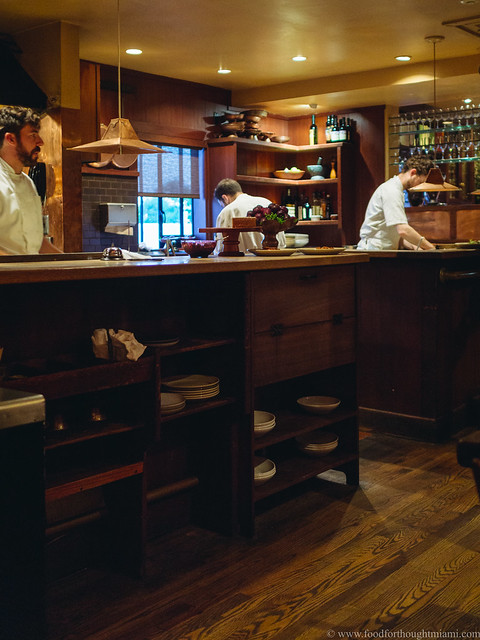
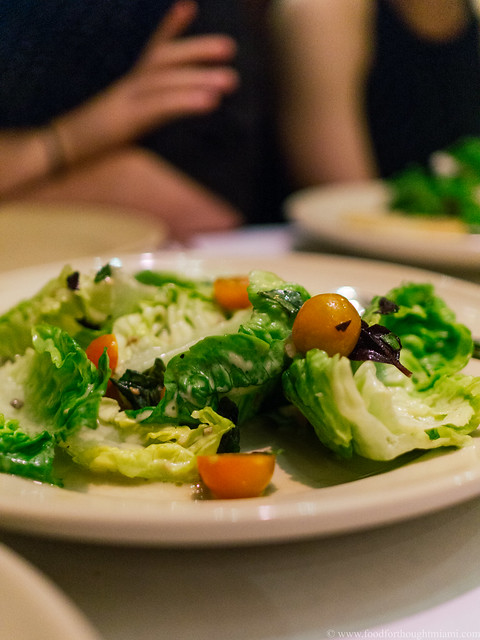
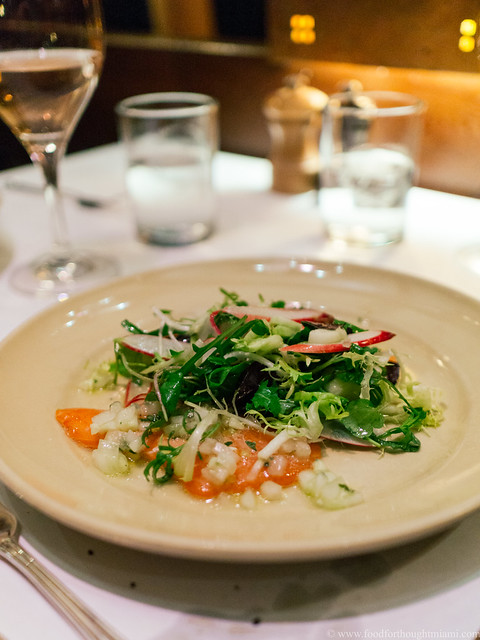
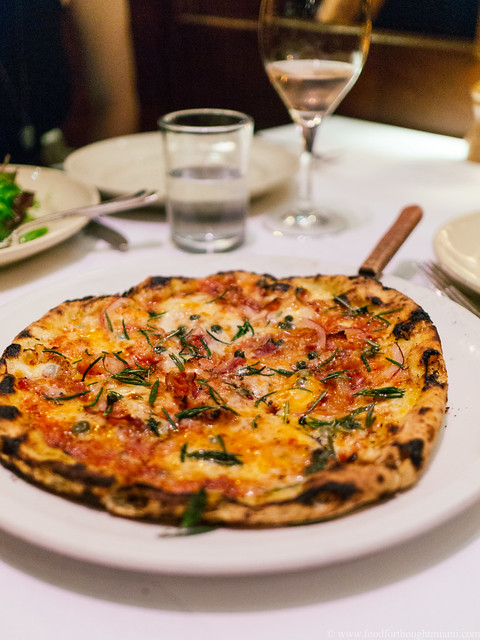
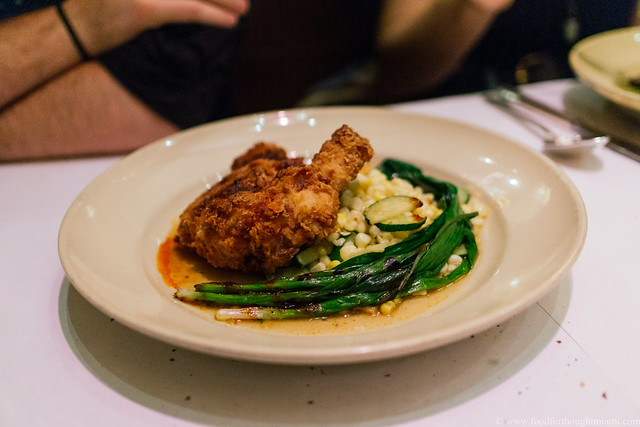

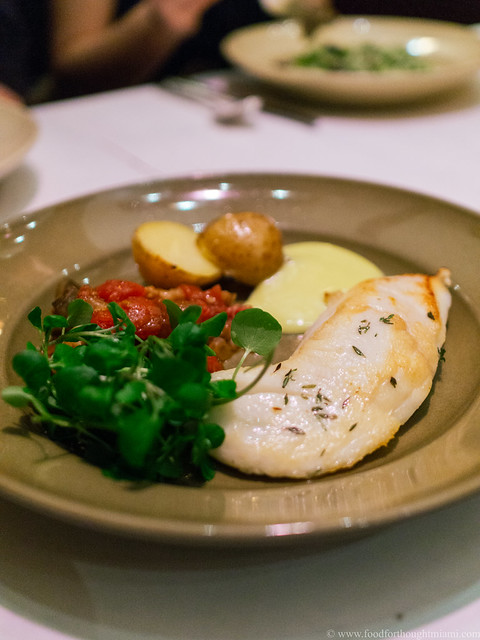

I love this place.....
ReplyDelete